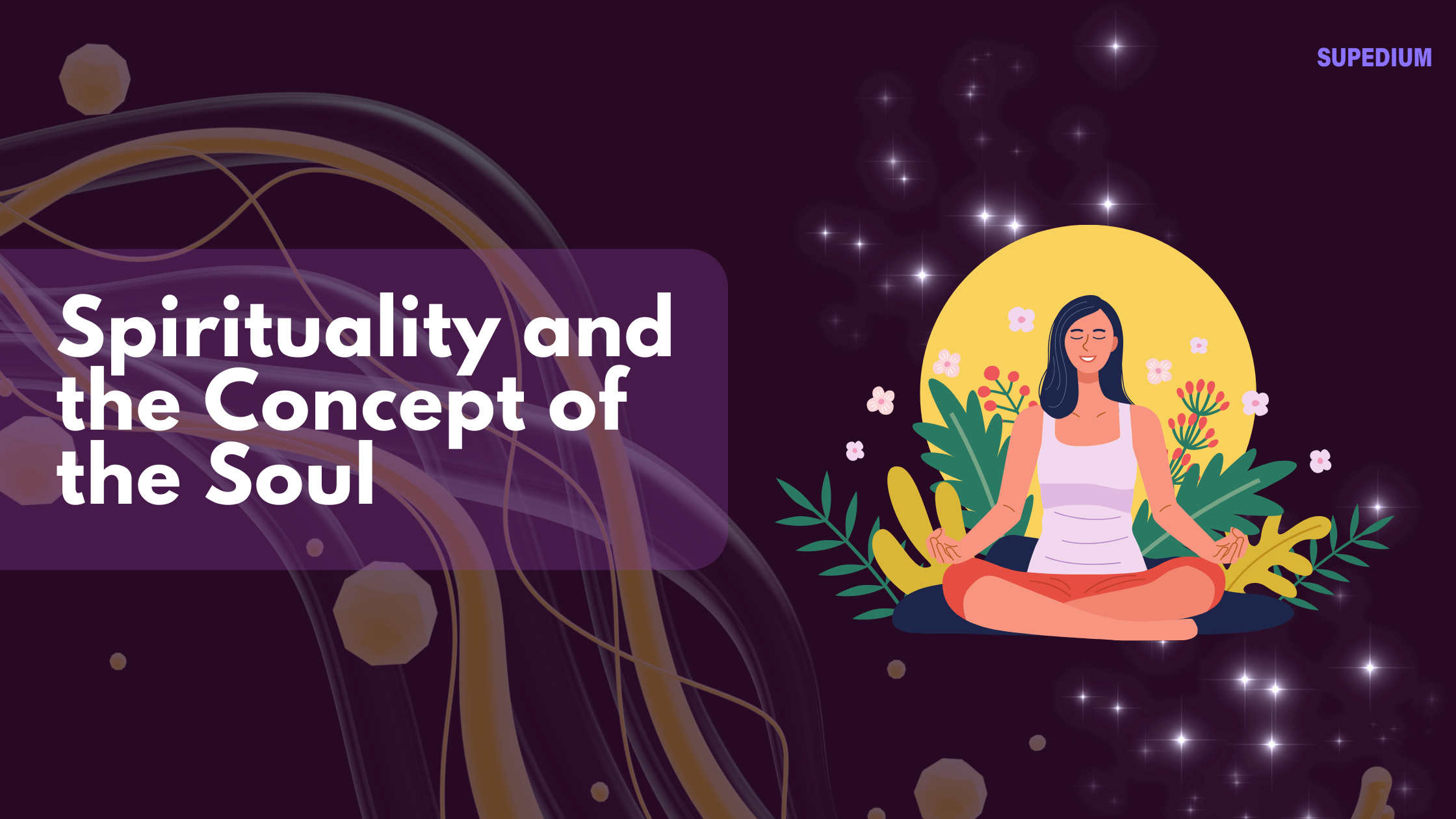Table of Contents
![]()
Introduction
Spirituality often refers to the search for meaning and connection that transcends the material aspects of life. It can encompass personal growth, self-discovery, and a sense of connection to something greater than oneself. Spirituality is frequently contrasted with religion, which tends to involve specific doctrines, rituals, and communal worship. While religion can be a path to spirituality, the latter is broader and more individualistic, often reflecting personal beliefs and experiences.
The soul is a concept found in many spiritual and philosophical traditions, generally understood as the essence or core of an individual’s being. Throughout history and across cultures, the soul has been associated with the self, consciousness, and identity. This article explores the multifaceted relationship between spirituality and the concept of the soul, examining historical perspectives, philosophical debates, and contemporary issues.
Historical Perspectives on the Soul
Ancient Civilizations
In ancient Egypt, the soul was a complex entity composed of multiple aspects. The Ka was the life force, the Ba was the personality that could travel between the living and the dead, and the Akh represented the soul’s immortality. This multifaceted view reflected a deep belief in the soul’s journey and its interactions with the divine.
Greek philosophy provided another influential perspective. Plato, in his Phaedo, posited that the soul is immortal and exists in a realm of pure forms before and after its life in the physical world. Aristotle, on the other hand, viewed the soul as the “first actuality” of a living body, essential for its life and function but not necessarily separate from it.
In Hinduism, the soul, or Atman, is considered the true self, an eternal essence that is ultimately one with Brahman, the universal spirit. This concept underscores the belief in reincarnation and the spiritual journey toward liberation or moksha.
Buddhism presents a contrasting view with its doctrine of Anatta, or non-self. The Buddha taught that what we consider the self is an aggregation of changing elements rather than a permanent soul, emphasizing the impermanence and interdependence of all phenomena.
Major World Religions
Christianity traditionally holds that the soul is immortal and central to human identity. The soul’s fate is often tied to salvation and eternal life with God, reflecting a belief in the soul’s moral and spiritual journey.
In Islam, the soul, or Ruh, is created by God and is responsible for the individual’s moral and spiritual actions. The journey of the soul includes its earthly life, its judgment, and its ultimate destination in the afterlife, either paradise or punishment.
Judaism views the soul as an integral part of human existence with a divine origin. Various Jewish traditions discuss the soul’s role in the afterlife, including resurrection and the World to Come.
Indigenous beliefs frequently involve animism, where the soul or spirit is seen as inherent in nature and all living things. This view highlights the interconnectedness of all life and the spiritual significance of the natural world.
Spirituality and the Soul
Personal and Individual Experience
For many, spirituality involves personal experiences of the soul that are profound and transformative. Mystical experiences, such as those described in various religious traditions, often involve a deep sense of unity, transcendence, and connection with the divine or the universe.
Spiritual Practices
Practices such as meditation are believed to facilitate direct experiences of the soul and its true nature. Meditation can lead to heightened awareness, inner peace, and a sense of connectedness, which many interpret as encounters with the soul.
Prayer and rituals also play a significant role in spiritual practices, offering ways to engage with and express the soul’s needs and aspirations. Artistic expression, including music, dance, and visual arts, can also be a medium for exploring and manifesting the soul’s depths.
Modern Spirituality
Modern spiritual movements, including New Age spirituality, often emphasize personal empowerment and the exploration of consciousness. These movements may blend elements from various traditions, focusing on individual experiences of the soul and the potential for personal transformation.
Psychological perspectives, such as those proposed by Carl Jung, explore the soul in terms of the self and the unconscious. Jung’s concept of the collective unconscious and archetypes reflects an understanding of the soul as a profound aspect of human psychology.
Philosophical Perspectives
Dualism vs. Monism
Philosophical debates about the soul often revolve around dualism and monism. Dualism, as proposed by René Descartes, posits a separation between the mind (or soul) and the body. In contrast, monistic views, such as those of Baruch Spinoza, see mind and body as aspects of a single substance or reality, challenging the notion of a separate, immaterial soul.
The Soul and Consciousness
The relationship between the soul and consciousness is a key area of philosophical inquiry. Some philosophers argue that consciousness is an emergent property of physical processes, while others maintain that consciousness is an expression of a deeper, immaterial soul.
Ethical Implications
The concept of the soul often intersects with discussions of ethics and morality. Beliefs about the soul’s nature can influence views on moral responsibility, free will, and the nature of ethical behavior. The soul’s role in shaping personal values and actions reflects broader questions about human nature and moral agency.
Scientific Perspectives
Neuroscience and the Soul
Advances in neuroscience have brought new perspectives on the nature of consciousness and the self. While some researchers focus on how brain processes relate to subjective experiences, others question whether these findings impact the traditional concept of the soul.
Parapsychology and Phenomena
Studies of phenomena such as near-death experiences and reincarnation provide intriguing, though controversial, insights into the soul. These studies explore whether such experiences suggest the existence of a soul that persists beyond physical death.
Critiques of the Concept of the Soul
Materialist critiques challenge the concept of the soul by arguing that all aspects of human experience, including consciousness and identity, can be explained through physical processes and brain functions. This perspective emphasizes empirical evidence and the scientific method.
Contemporary Debates
The Soul and Identity
In contemporary discussions, the soul is often examined in relation to personal identity. Philosophical and psychological theories explore how the concept of the soul influences our understanding of selfhood and continuity over time.
The Future of the Concept of the Soul
Emerging technologies and concepts like transhumanism raise questions about the future role of the soul. As technology advances, issues such as artificial intelligence, consciousness transfer, and digital immortality prompt new reflections on the nature of the soul and its place in future human experience.
Conclusion
The concept of the soul remains a central and compelling aspect of spirituality, influencing a wide range of beliefs and practices. Whether viewed through historical, philosophical, scientific, or contemporary lenses, the soul represents a profound aspect of human experience and understanding. Reflecting on the soul’s role in spirituality offers valuable insights into the nature of existence, consciousness, and personal identity. As we continue to explore these questions, the interplay between spirituality and the soul will undoubtedly remain a vital area of inquiry and reflection.
Share This





Be the first to comment